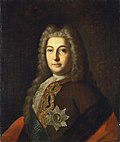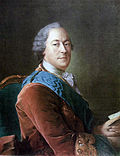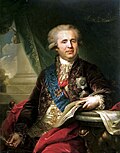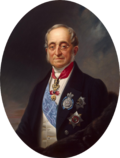| Minister of Foreign Affairs of the Russian Federation | |
|---|---|
| Министр иностранных дел Российской Федерации | |
| Ministry of Foreign Affairs | |
| Member of | Government Security Council |
| Reports to | President |
| Seat | Foreign Affairs Building, Moscow |
| Appointer | President (after consultation with the Federation Council) |
| Term length | No fixed term |
| First holder | Andrei Kozyrev (post-Soviet era) |
| Website | www.mid.ru/minister |
 |
|---|
The minister of foreign affairs of the Russian Federation is a high-ranking Russian government official who heads the ministry of foreign affairs of the Russian Federation. The foreign minister is one of the five presidential ministers, along with the ministers of defence, interior, emergencies and justice. Although they are members of the Cabinet, they are directly subordinate to the President.
Contents
- Tsardom of Russia
- Russian Empire
- Provisional Government
- Russian SFSR (1917–1991)
- Russian Federation (1991–present)
- Timeline
- See also
- References
- External links
The foreign minister, like other presidential ministers, is nominated and appointed by the President after consultation with the Federation Council (whereas non-presidential ministers are nominated by the Prime Minister and appointed by the President after approval by the State Duma). The foreign minister is also a permanent member of the Russian Security Council. [1]


















































